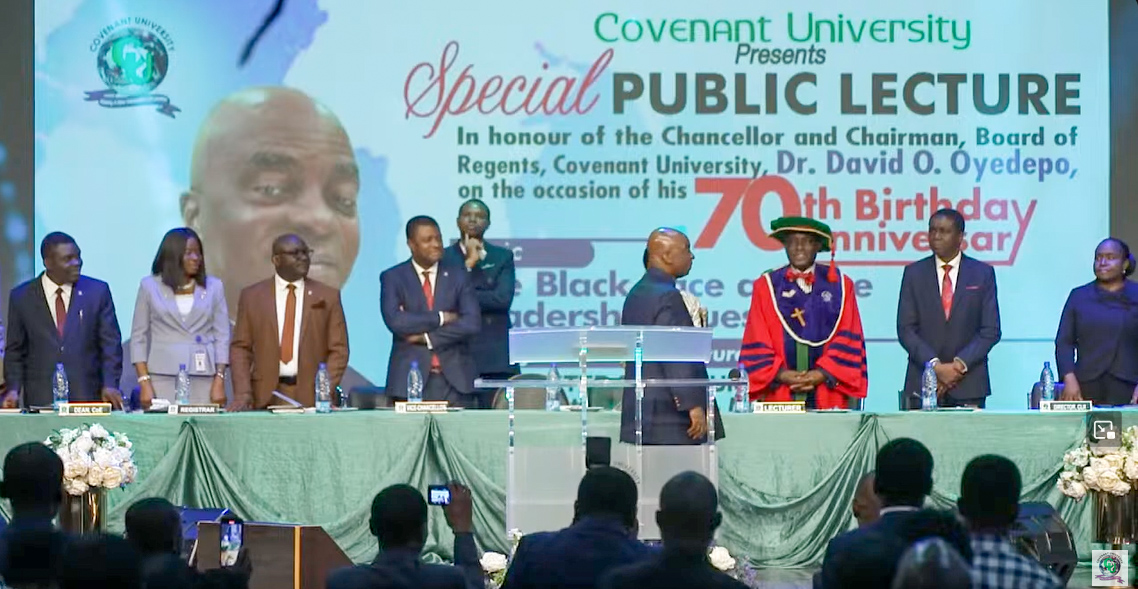The Conflict between Masculinity and Emotional Expression.
By Treasure Kilali
An age-old tale is an ever-present disagreement between the male gender and expressing even the tiniest bit of emotion, a habit which has been normalized by the rigid expectations set on men by society that defines what it means to “be a man”.
A while back, a statement was made by an authoritative figure in the Covenant University community. This person, who will remain anonymous, had been explaining a situation that involved a woman who had been visibly upset by the news she received and as such, had broken down in tears.
While recounting his story, he said “Thank God I’m a man, and I’m not moved by tears.” This statement while seemingly harmless holds a weight that many failed to see amongst his audience. He had, consciously or not, confirmed to many young men seated before him that tears are a sign of weakness and because he is a man, such a weakness could never move him.
To understand where the culture of expressing emotion began to be seen as a weakness by men, one must go back to the days when males were viewed as the main, and in some cases only providers. Due to the hardness of life and the daily strive to survive, men were expected to present an image of unbending strength, self –reliance and fearlessness. This was the default setting every man had to operate in from the time of childhood until the hair on his head turned grey.
Now, we live in a world where despite still existing and highly unrealistic ideals on what a certain gender should act like, more people are becoming aware of the need to re-define the restrictions placed by society. This has led to movements such as Feminism and the informed use of terms like“misogyny”, “gender norms” and “toxic masculinity”.
Colleen Clemens, associate professor of non-Western literatures and director of Women’s and Gender Studies at Kutztown University in Pennsylvania, had this to say about toxic masculinity and its risks: “Toxic masculinity, the idea that there is only one way to “be a man”—strong, tough, unfeeling and aggressive—is a double-edged sword. First, it harms the boys and men who fail to live up to gendered expectations of who they should be.”
The concept of masculinity is such a delicate one that causes sensitive reactions amongst the gender it involves. Men never seem to want to discuss why they are the way they are. They see things like violence, aggression, ego, pride, and excessive displays of physical strength, as good habits which should be incorporated into their daily routine.
Who can blame them, when all society has done through movies, standards and statements like “Man up!” is to condition males to believe that anything that does not depict them as the alpha is wrong and should be avoided.
This has led to a vivid conflict between men and expressing emotions that are believed to show weakness. Emotions such as pain, fear, compassion, regret, humility, sadness, and even love are viewed as signs of weakness by a vast majority of this gender. The male population of Covenant University is not exempt from this standard; instead, these stereotypes are often encouraged by the figures of authority and the environment within which they have to endure.
Men don’t cry. Be strong. Don’t show hurt. Time and time again, even among friends, these odd rules are whispered from one man to another. Words like “pussy”, “weak”, and “simp” are used as insults for men who dare to break the golden rule and express some level of emotion.
Male or female, we were all meant to feel things and try to understand what it is we are feeling and why. These limitations placed on men by their founding fathers have stunted many from full growth into developed and comprehensive beings; instead, it has led to terms like “man-baby”, “immature” and “emotionally distant”.
Colleen Clemens, associate professor of non-Western literatures and director of Women’s and Gender Studies at Kutztown University in Pennsylvania says “We need to stop telling the boys and the men in our lives to “man up” when they dare to show emotion or pain. We need to encourage them to drop the “tough guise” and let them grow up with space for tenderness.”
Emotion is a human thing, not a woman thing. The ability to comprehend emotion and express it accordingly is a sign of intelligence often referred to as emotional intelligence. Hence, expressing emotion is not a weakness. It is a natural experience of the human species.
In the words of award-winning author, Chimamanda Ngozi Adichie: “By far the worst thing we do to males – by making them feel they have to be hard, is that we leave them to very fragile egos.”






